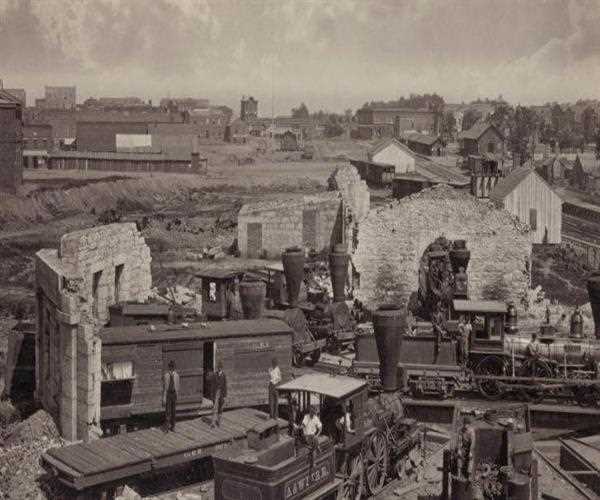
The Civil War, similar to all wars, interfered with the rhythms of business life by devastating lives and property. This was particularly obvious in the Confederacy. From 1861 onwards, the Confederate government battled to discover the firearms, food, and supplies expected to handle a military. Southerners made surprising additions in modern creation during this time, however, it was rarely enough.
The Union's bar of the Atlantic kept the Confederacy from financing the war with cotton deals to Europe. To pay their soldiers and keep the economy alive, the Confederate Congress went to printing paper cash which immediately sank in worth and lead to fast swelling.
As a rule, Confederate authorities shed expenses paid in real money and just dazzled the food and materials required from their residents. Maybe generally striking of all, in the huge agrarian abundance of the South, numerous southerners battled to discover enough to eat.
The war additionally pushed the US government to make extraordinary strides. Congress raised duties, and passed the main public personal assessment in 1862. After the suspension of specie installments in late 1861, Congress made the US's first fiat money called "greenbacks." from the start, the development of the cash and the fast ascent in government spending converted into an uptick in business in 1862-1863. As the war delayed, expansion likewise hit the North.
Laborers requested higher wages to pay leases and purchase necessities, while the business network moaned under their developing taxation rate. The United States, be that as it may, never set out on an approach of impressment for food and supplies.
The production lines and homesteads of the North effectively provided Union soldiers, while the national government, with certain changes, discovered the way to pay for the war. None of this is to propose that the North's boss capacity to gracefully its war machine made the result of the war unavoidable.
Any record of how the war advanced must assess the tangled snare of governmental issues, fights, and financial matters that happened somewhere in the range of 1861 and 1865. The outcome of the war left segments of the Confederacy in ruins, and with almost no cash to remake.
State governments were buried underwater, and white growers, who had the greater part of their capital tied up in slaves, lost a large portion of their riches. Cotton remained the most critical harvest, however, the war changed how it was developed and sold. Grower separated huge homesteads into littler plots tended to by single families in return for a part of the harvest, called sharecropping. When cotton creation continued, Americans found that their cotton presently contended with new cotton ranches far and wide.